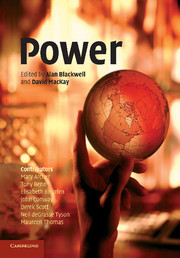1 - Sustainable power
Published online by Cambridge University Press: 07 August 2009
Summary
Energy is vital to our economic and social well-being. Economic growth would be impossible without the ready availability of fuels to provide affordable heat, light and motive and electrical power. Yet the provision of power from fossil fuels poses a major threat to our environment, for we live, most of us now accept, in a globally warming world. Low-carbon technology will be essential in powering tomorrow's world in a sustainable way.
It has been said that extrapolation of the present North American per capita energy consumption to the world's population of 6 billion people would require the resources of several additional Earths to cope with the waste products, in particular the CO2 (carbon dioxide) emissions that come from burning fossil fuels. Clearly that is unsustainable. Sustainable development, a concept popularised by the Brundlandt Report of 1987, is generally understood to mean development that enables us to meet our present needs without compromising the ability of future generations to meet their own needs. The UK government has been committed to sustainable development since 1994, and now monitors national progress in achieving sustainability in energy supply and consumption, as well as in other areas of life. ‘National emissions of greenhouse gases’ is one of the Department of Trade and Industry's (DTI's) six headline indicators of sustainability.
But would a sustainable energy policy pay for the sequestration of anthropogenic CO2 emissions or for raising coastal defences to cope with rising sea levels?
- Type
- Chapter
- Information
- Power , pp. 4 - 20Publisher: Cambridge University PressPrint publication year: 2006

